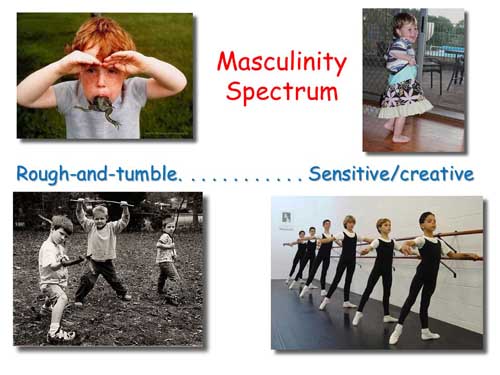This weekend my understanding of the power of prayer was bumped up a notch.
I was at a retreat that was being bathed in prayer; 50 young people, all battling unwanted same-sex attractions, gathered to find fellowship with each other and pursue greater intimacy with Jesus. The fact that they were there at all is an evidence of the power of God and the fact that He answers the prayers of their loved ones. The fact that so many of them are experienced some degree of change in the way they think and act, with a resulting change in the intensity of their feelings, is also evidence of the power of God. Nothing builds my faith like seeing His love and grace and power released into the lives of precious people like these dear friends of mine.
But the “notch-bumper” came in the form of two incidents.
Several of the board members of this ministry, of which I am one, came to teach seminars. After we finished, I visited with two of them, both pastors. We were talking about how spiritual warfare rages in the weeks before, during and after our retreats. One pastor said, “I confessed to the Lord the other day, ‘I know You say to pray without ceasing, but I just don’t.’ He said, ‘If I let you see for just one second the battle that rages around you, you would never stop.’” Whoa. It was a good reminder to not remain content with simply looking at the physical, material world as if that were all that exists. There are angels and demons at work and at war all around us—all the time!
That night, while we were all singing worship songs, a young lady asked to speak to me outside in private. She asked permission to leave the building because she needed to be alone with God. I had a sense there might be something else going on even if I didn’t know what it was, but the Lord didn’t give me a “red light” in my spirit about letting her go. So we agreed that she would be back by 9:00.
By 9:10, she still hadn’t returned. I started praying that the Holy Spirit would draw her back to the rest of us. I envisioned a rope tied around her heart, and in my spirit I kept pulling on the rope. A few minutes later she walked in the door with a funny look on her face. I walked over and gave her a long, warm hug, whispering, “I’m so glad you came back.”
The next day a group of us were talking with her about her time alone with God. Apparently, she was unhappy with Him and was arguing with Him about something. I told her about my prayer and my pulling on the rope, and her eyes grew big. “That was you??” she asked. “I didn’t want to go back, I had no intention of going back, but all of a sudden I found myself on my feet, and then I was walking back to the building where everyone was, and I was saying, ‘What’s going on? I don’t want to do this!’ But then I found myself in the room with everyone.”
It gave me spiritual goosebumps. When we abide in Jesus—the theme of the retreat—our prayers are His prayers, and He answers them. In ways that bring Him glory. . . and bring us goosebumps.
This blog post originally appeared at blogs.bible.org/engage/sue_bohlin/prayer_notch-bumpers on March 1, 2011.
 The moment in the film that has stayed with me all this time is when the lead alien, played by Brian Dennehy, checks his human disguise in the mirror. He pulls down his lower eyelid, revealing the light within that shoots out in a beam. I gasped internally: what a picture of the Incarnation of the Lord Jesus Christ!
The moment in the film that has stayed with me all this time is when the lead alien, played by Brian Dennehy, checks his human disguise in the mirror. He pulls down his lower eyelid, revealing the light within that shoots out in a beam. I gasped internally: what a picture of the Incarnation of the Lord Jesus Christ! The book is set in 2088. Abby Caldwell, who grew up as the daughter of missionaries in Papua New Guinea in a tribe cut off from the rest of the world, comes back to the U.S. and learns that Christianity has died out. She is “the last Christian.” Her grandparents had left her a message sixteen years before telling her that God had impressed on both of them that she was His choice to bring Christianity back to this country, but because she had no contact with the outside world, she hadn’t received it. At the same time as Abby’s entry to American culture (quite a shock for someone who grew up in a primitive jungle culture), stories start popping up on “the Grid” about people having dreams of Jesus.
The book is set in 2088. Abby Caldwell, who grew up as the daughter of missionaries in Papua New Guinea in a tribe cut off from the rest of the world, comes back to the U.S. and learns that Christianity has died out. She is “the last Christian.” Her grandparents had left her a message sixteen years before telling her that God had impressed on both of them that she was His choice to bring Christianity back to this country, but because she had no contact with the outside world, she hadn’t received it. At the same time as Abby’s entry to American culture (quite a shock for someone who grew up in a primitive jungle culture), stories start popping up on “the Grid” about people having dreams of Jesus. Krissi Dallas has hit the road running with her debut novel, Phantom Island: Wind. It instantly found its way to the number one selling spot at Authorhouse.com as the word-of-mouth buzz about this page-turner spread like wild fire surrounding the novel’s release. The novel is Young Adult fiction; it’s full of drama, adventure, suspense, and romance. As a vested seventh and eighth grade teacher and the wife of a youth pastor, YA fantasy-fiction is something Krissi Dallas is an expert on and has a passion for. Her love and affinity for her students, as well as the openly autobiographical nature of much of the book, have allowed Dallas to “open a vein,” and write from the depths of who she is, from the heart. This deep connection transfers itself to the reader. I found myself desperately curious; no, not just curious, committed and concerned about the characters. Reading until the end of the chapter wasn’t enough: I had to find out what would happen next and would they be okay. I don’t think I have ever read a book this size this quickly—not even any of the Harry Potter series… which I also toted obsessively wherever I went so I could read every chance I got.
Krissi Dallas has hit the road running with her debut novel, Phantom Island: Wind. It instantly found its way to the number one selling spot at Authorhouse.com as the word-of-mouth buzz about this page-turner spread like wild fire surrounding the novel’s release. The novel is Young Adult fiction; it’s full of drama, adventure, suspense, and romance. As a vested seventh and eighth grade teacher and the wife of a youth pastor, YA fantasy-fiction is something Krissi Dallas is an expert on and has a passion for. Her love and affinity for her students, as well as the openly autobiographical nature of much of the book, have allowed Dallas to “open a vein,” and write from the depths of who she is, from the heart. This deep connection transfers itself to the reader. I found myself desperately curious; no, not just curious, committed and concerned about the characters. Reading until the end of the chapter wasn’t enough: I had to find out what would happen next and would they be okay. I don’t think I have ever read a book this size this quickly—not even any of the Harry Potter series… which I also toted obsessively wherever I went so I could read every chance I got. When I use the term “gender spectrum,” you might think in terms of masculinity on one end and femininity on the other. We hear men being prompted to “get in touch with your feminine side.” (For some reason, women never seem to be exhorted to “get in touch with your masculine side.” Huh.)
When I use the term “gender spectrum,” you might think in terms of masculinity on one end and femininity on the other. We hear men being prompted to “get in touch with your feminine side.” (For some reason, women never seem to be exhorted to “get in touch with your masculine side.” Huh.)
